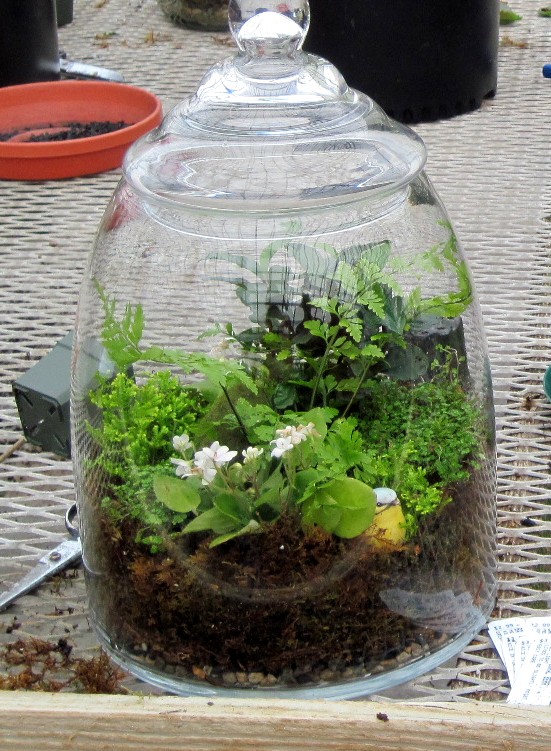Caring For Your Terrarium
Heat
Closed glass containers trap and hold heat, and excessive heat is perhaps the main cause of death in terrariums. It is important that terrariums not be placed above radiators or in direct sunlight.
Light
Terrariums do better in diffused or filtered light than direct sunlight. Artificial light can also be used.
Too much sun: Leaves wilt and develop burned spots. Move the terrarium to a shadier spot.
Too little light: Plants develop tall, thin stems that are weak and unable to hold up leaves. Leaves are pale and fragile. Increase amount of light slowly.
Water for an open terrarium
For plants that like moist soil, the top earth should feel barely moist before you add water.
For cacti and succulents, touch below the surface layer. The lower soil should be only slightly damp before you water.
Water for a closed terrarium
Closed terrariums should rarely, if ever, need water.
If they are too dry: Leaves wilt and look pale. Moss becomes brown or faded. Add a little water and mist leaves.
If you give too much water: Excessive water encourages the growth of molds and causes plant decay. If terrarium walls have more than 25% condensation, remove the cover until walls clear. You may have to do this more than once. In a closed terrarium, there should be only occasional clouding.
Plant growth
Terrarium plants should be scaled to the size of the container. As plants grow, prune back those that show signs of overcrowding. Clip and remove dead leaves. Replace dead plants. Remove plants that become too big.

